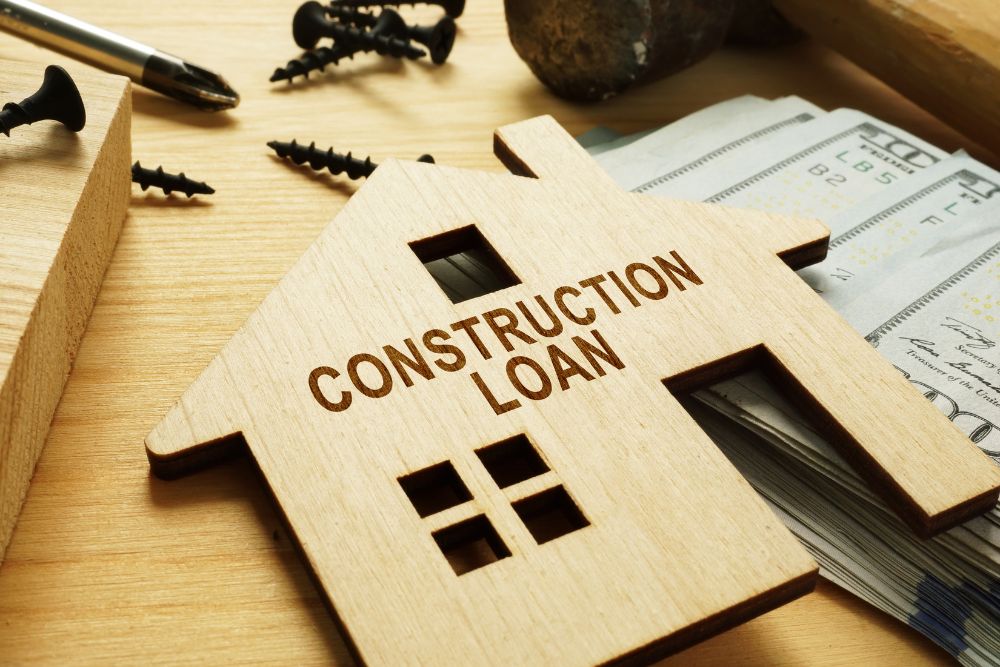How to Overcome Declining Purchasing Power with Real Estate
|
Getting your Trinity Audio player ready...
|
By Rick Tobin
Homeowners are 40 times wealthier than tenants. Real estate is an exceptional hedge against inflation because home values tend to rise at least as high as the published inflation rates.
If you’re fortunate to own real estate over years or decades, it’s very likely to be the main reason for the bulk of your family’s overall net worth. Conversely, tenants will be losing money over time as their rents continue to rise right alongside skyrocketing inflation rates.
article continues after advertisement
Americans in 2023 need to earn more than $11,400 to be able to enjoy the same standard of living as they did in 2021 thanks to the rapidly declining value of our dollar, according to CBS News.
If your earnings rose by 34% from January 2020 to October 2023, the purchasing power of your labor kept pace with higher costs. All of us who aren’t earning 34% more since January 2020 have lost ground. It now takes more hours of work to buy groceries and everything else. To offset declining purchase power, real estate ownership may be your best option.
The purchasing power of $100,000 in income in January 2020 is only $66,000 in purchasing power today (34% reduction). To keep pace with the rapidly falling purchasing power of the dollar, $100,000 in income in January 2020 would need to rise to $134,000 in income today or your investments would need to appreciate at the same rate to offset your dollar losses.
Rising Prices for Goods, Services, and Assets
Between 2008 and the 1st quarter of 2023, let’s review some of the “official” government published data for consumer goods, services, and assets from sources such as the U.S. Bureau of Labor Statistics:
- Hospital services: +99.8%
- College tuition: +64.4%
- Child care: +62.1%
- Medical care: +57.2%
- Food and drink: +52.8%
- Housing: 48.3%
Again, these are the published numbers that are likely underreported and much lower than the true inflated price changes. To me, it seems like all prices are significantly higher here in the 4th quarter of 2023 as compared to the 1st quarter this year. If so, the actual price gains may be significantly higher as we head into 2024.
All-Time Record High California Home Prices
In spite of mortgage rates more than tripling over the past year or so, housing prices statewide in California have never been higher for owners, new buyers, and tenants.
Shocking Los Angeles Home Price Swings
The median home sales price in Los Angeles County hit a record high of $914,640 in September 2023.By comparison, the median Los Angeles County home price was $318,075 (12/08).
Near the peak of the previous housing bubble and near the official start of the Credit Crisis or Great Financial Recession in late 2008, the median home sale price was almost $600,000 lower in Los Angeles County than median-priced homes in the same region. How is this not shocking?
Today, Los Angeles is ranked as the #2 most expensive U.S. city and the #6 most expensive worldwide city for residents to live in, according to KTLA News.
Many California homeowners have never been wealthier due to rapidly increasing home equity gains while many tenants have never been poorer due to their all-time record high rental payments, sadly.
article continues after advertisement
Expensive Coastal Regions and Inland Moves
Because some of the most expensive real estate prices in the world are located in California coastal counties like San Diego, Orange, Los Angeles, Ventura, Santa Barbara, and San Francisco (both a city and county name), more residents are moving inland to places like Riverside or San Bernardino counties in Southern California or out of state to Arizona, Nevada, or Texas.
Buyer demand still exceeds the available home supply while pushing home prices higher, especially in the Riverside County region, which is much more affordable than the near $840,000 statewide home price average for California.
Riverside County Home Spotlight Region
The median sale price of a single-family home in Riverside County was a new all-time record high of $620,960 in October 2023, up from $600,000 in September, with a rise from $599,990 in October 2022, according to the California Association of Realtors.
- Lake Elsinore: $575,000 ($175,000 below the Temecula average)
- Canyon Lake: $662,000
- Menifee: $547,500
- Murrieta: $657,500
- Temecula: $750,000
- Corona: $759,000
Adding Value to Real Estate
Owners or interested buyers who are thinking about purchasing a new one-to-four unit property to boost their wealth and/or monthly income with rental units have several options these days which may include:
- First-time owner-occupied homes
- A move-up from a smaller to a larger home
- A short-term or long-term rental
- Adding tiny homes or ADU (Accessory Dwelling Unit) to a residential property site to increase monthly cash flow.
- Remodeling an existing home with a new kitchen, bathroom, or bedroom.
- Building a brand new home, duplex, triplex, or fourplex from the ground up.
One-Time Close Construction Loans
I’ve worked on numerous individual home construction loans and large residential development tracts over the past few decades. Yet, I’ve never seen a better, easier, and more affordable home construction loan option for owners who are interested in building a brand new “dream home” for their family.
Generally, a person may need two or three separate loans to build a new home that may include a land purchase loan (40% to 50% LTV ranges are more the norm), construction loan, and a final 30-year takeout or permanent loan to pay off the construction loan.
With a One-Time Close Construction Loan, the borrower applicant qualifies for one loan to buy the land, build the home, and keep the same loan for up to 30 years all within one loan closing option. This way, there’s one credit report pull, one loan underwriting and approval process, one down payment unless it’s a VA loan (up to 100% financing) or a very low down payment requirement for FHA-insured and conventional loans (up to 95% to 96.5% LTV).
Let’s review below some of the loan product highlights offered by one of my main lending partners:
Conventional Loans
* Available on 15-and 30-year fixed conventional, high balance and 7- and 10-year ARM options
* Eligible on primary, second or vacation home, and investment property purchases and rate/term refinances
* Loan amounts up to the conforming loan limits
* 700+ FICO, up to 95% LTV
* 11-month maximum build period with 1-month modification period
* Interest-only monthly payments during the build period
VA Loans
* Available on 30-year fixed loans
* Loans up to $4M
* Eligible on primary home purchases and cash-out refinances
* 580+ FICO, up to 100% LTV
* 11-month maximum build period with 1-month modification period (build period is deducted from the loan term)
* No monthly payments during the build period
Rule of 72 and Power of Leverage
Real estate has proven to be an exceptional hedge against inflation over the past 100 years. In some economic boom years, home values may double in value every 2, 3, 5, 7, or 10 years. With minimal down payments, the true annual cash-on-cash returns are much higher than most people realize.
The Rule of 72 is an investment formula used to estimate how long it may take for an asset to double in value using a projected annual rate of return. If homes in your region have increased 7% per year over the past several years and home appreciation continues at the same pace in the future, then it may take 10+ years for your new home to double in value using the Rule of 72 (72/7 or 7% = 10+ years).
Most first-time home buyers use high mortgage leverage within a 0% to 6% down payment range (6% down is average).
Let’s use 20% down payment for an estimated cash-on-cash return for an owner-occupied or investment property buyer. At a 7% annual appreciation rate average, the cash-on-cash return is actually 5 times 7% (20% down – 1/5th; 80% bank – 4/5th) for a total 35% annual cash-on-cash return.
Time and inflation can be two great allies to eliminate the mortgage debt as your home rises in value thanks to the power of leverage and inflation.
Is the housing market positive, negative, or neutral? It depends on the home region, the regional home listing inventory supply, and the price range is perhaps the safest answer to give.
Why doesn’t it feel like a slow home sales market to first-time buyers? Let’s take a closer look at the national home sales numbers for October 2023 as provided by the National Association of Realtors:
- 66% of homes for sale were sold in less than a month.
- 62% of surveyed real estate professionals said that their first-time home buyers had to put in four or more offers before closing on a home.
- The median home sales price for an existing home was $391,800, up 3.4% compared to a year ago.
Invest in Your Future Today
The average homeowner at retirement age has 83% of their net worth tied up in their primary home. 60%+ of Americans surveyed say that they live paycheck to paycheck, so saving is challenging. Middle-income parents may spend an average of $310,605 by the time a child born in 2015 turns 17 years old in 2032, per Brookings Institute. What about college?
The average Social Security benefit paid out in 2022 was $1,657/mo. ($19,884/yr.). Median savings rate (excluding retirement funds) by age: $3,240 (under 35); $4,710 (35-44); $5,620 (45-54); and $6,400 (55-64), per a Federal Reserve survey. The median retirement savings for all families is $87,000, according to the 2022 Survey of Consumer Finances.
There’s good debt (mortgages) and bad debt (credit cards at 28% to 33% rates, etc.). Mortgages help create long-term wealth, especially after they are paid off in full. To shorten the time to pay off a mortgage, you might pay biweekly and add some principal to reduce 10 to 15+ years in payments while the home asset potentially doubles or triples in value.
Our dollar’s purchasing power is on track to continue falling in value. If so, the prices paid for consumer goods, services, and assets like real estate may keep rising as well. As a result, equity gains for real estate ownership may increase while giving you more options to pay off debt and build a brighter future.
Rick Tobin
Rick Tobin has worked in the real estate, financial, investment, and writing fields for the past 30+ years. He’s held eight (8) different real estate, securities, and mortgage brokerage licenses to date and is a graduate of the University of Southern California. He provides creative residential and commercial mortgage solutions for clients across the nation. He’s also written college textbooks and real estate licensing courses in most states for the two largest real estate publishers in the nation; the oldest real estate school in California; and the first online real estate school in California. Please visit his website at Realloans.com for financing options and his new investment group at So-Cal Real Estate Investors for more details.
Learn live and in real-time with Realty411. Be sure to register for our next virtual and in-person events. For all the details, please visit Realty411.com or our Eventbrite landing page, CLICK HERE.





















